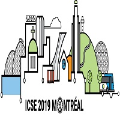Background: The state of the art in software engineering consists of a myriad of contributions and the gaps between them; it is difficult to characterize. Questions: In order to help understanding the state of the art, can we identify gaps in our knowledge that are at a very general, widely relevant level? Which research directions do these gaps suggest? Method: 54 expert interviews with senior members of the ICSE community, evaluated qualitatively using elements of Grounded Theory Methodology. Results: Our understanding of complexity, of good-enoughness, and of developers' strengths is underdeveloped. Some other relevant factors' relevance is apparently not clear. Software engineering is not yet an evidence-based discipline. Conclusion: More software engineering research should concern itself with emergence phenomena, with how engineering tradeoffs are made, with the assumptions underlying research works, and with creating certain taxonomies. Such work would also allow software engineering to become more evidence-based.
翻译:背景:软件工程的先进水平由各种贡献和它们之间的差距构成;很难定性。问题:为了帮助了解技术现状,我们能否找出我们知识中普遍存在的、具有广泛相关性的差距?这些差距是哪些研究方向所显示的?方法:54次专家访谈,利用基础理论方法对软件工程界的高级成员进行质量评估;结果:我们对复杂性、良好营养和开发商优势的理解不够充分。其他一些相关因素的相关性显然还不清楚。软件工程还不是基于证据的学科。结论:更多的软件工程研究应该关注新出现的现象,如何作出工程权衡,如何作出工程权衡,如何建立某些分类。这类工作还可以使软件工程更加以证据为基础。




